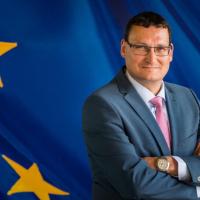A private Science|Business Network hybrid roundtable (14:00 – 16:15 CET)
In one form or another, public-private partnerships (PPPs) have been a central component of the EU’s research framework programmes since the mid-1980s. From Clean Skies to the Innovative Medicines Initiative, they have been one of the most important mechanisms to get industry, science and governments to cooperate and invest in strategic high tech sectors, and to bring advanced R&D solutions closer to market.
Despite inevitable bumps in the road and delays, the latest iteration of PPPs – an anticipated 49 European Partnerships through to 2030 – has begun to take shape. Cutting-edge work programmes are emerging, in areas from low carbon steel production and zero-emission transport to the open science cloud and AI, data and robotics – all supported by billions of euros from Horizon Europe. New efforts are being made by the Commission to ensure effective synergies, both between partnerships and with other funds and programmes. A case in point, the newly created “Chips for Europe” partnership – as part of the Chips Act - that cristallises the EU’s sky-high ambitions to boost its innovation capacity and increase its market share in a field where it heavily depends on the rest of the world.
As Horizon’s roll-out gathers momentum, it is time to take stock of the foundations being laid and progress made to date. Are European R&D stakeholders mobilising en masse behind the new initiatives? Is the scale of industrial support and funding above or below expectations? What are the stumbling blocks to bringing more companies and RTOs on board? Are SMEs happy with the level of access and value proposition for engagement? Do we need new partnerships? What role will partnerships play in the upcoming European Innovation Agenda, especially in relation with the Partnerships for Regional Innovation?
On June 23rd, the Science|Business Network will convene with senior representatives from the European Commission, the European Parliament and partnerships to discuss latest developments in this vital area of Horizon Europe, and the future prospects for industry to contribute to its long-term goals.



















13:30 Welcome coffee
14:00 Introduction
14:05 Horizon partnerships: novelties and ambitions
A helicopter view of the state of play of Horizon partnerships (e.g. Made in Europe, Innovative Health Initiative, Clean Hydrogen, EuroHPC). Questions on the table include: What are the different forms of partnerships? How have partnerships evolved from Horizon 2020 to Horizon Europe? What are the improvements, the novelties and the new challenges partnerships have to deal with?
14:45 Partnerships and technology sovereignty: How open should they be?
A group discussion about how partnerships can contribute to the European strategic autonomy agenda. How are partnerships adjusting to priorities spelled out in the “Single basic act” and, more generally, to the “Europe first” approach?
15:15 Coffee break
15:30 How can partnerships deliver more impact?
An open discussion around key questions such as: are partnerships sufficiently inclusive? How to create more synergies with other instruments and other forms of public-private collaboration? How will partnerships contribute to the Innovation cohesion agenda? Do we need more partnerships?
16:10 Conclusions
16:15 Networking drinks (until 17:30)
For further information, please contact Sara Crepaldi at [email protected]
Partners


 A unique international forum for public research organisations and companies to connect their external engagement with strategic interests around their R&D system.
A unique international forum for public research organisations and companies to connect their external engagement with strategic interests around their R&D system.